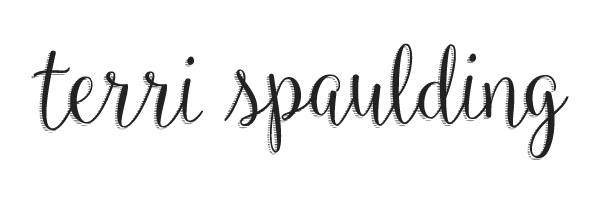 This week's Question of the Week came to me after skimming through a book that a friend recently loaned to me. (Thank you, Alana).
This week's Question of the Week came to me after skimming through a book that a friend recently loaned to me. (Thank you, Alana).
When I flipped through the book The Gifts of Imperfection by Brene Brown for the first time, one of the sub headings Hope and Powerlessness jumped out at me. For the past four months I have made it a point to pay close attention to "signs" that continually happen around me. For example, words that keep popping up in random conversations, or similar ideas/suggestions that come from friends, family or new acquaintances. When I consciously notice them, and follow-up with some research, those "signs" often lead me in new direction. Some "signs" become almost impossible to ignore once you train yourself to listen for them.
So the word powerlessness or its shortened form "power" has cropped up a lot lately in my deep discussions. The need to find our power within, to listen to the voice that comes out of that power, and maybe most importantly to act on it. To me, that moves a person from a powerless situation into a power "full" one. I hate being stuck, helpless or watching others struggle or become victims to their life's circumstances -- I am all about finding the power to move on and to move forward. So I read (yes you correctly assume I did not start this book at the beginning) a little further into the book and learned something new I hadn't thought of before.
Brown explains that like most people, she always thought of hope as an emotion --a warm feeling of optimism and possibility. But has since learned she was wrong...
Hope is not an emotion; it's a way of thinking or a cognitive process. In very simple terms, hope happens when:
- We have the ability to set realistic goals (I know where I want to go).
- We are able to figure out how to achieve those goals, including the ability to stay flexible and develop alternative routes (I know how to get there, I'm persistent, and I can tolerate disappointment and try again).
- We believe in ourselves (I can do this).
Hope is really a combination of setting goals, having the tenacity and perseverance to pursue them, and believing in our own abilities.*
This was enlightening to me as I never thought of myself as a hopeful person. Realistic is the word I usually choose. I consider myself a resourceful problem solver, never a pie in the sky hopeful person. I often confront a problem head on with a list of realistic solutions and expectations of what I can achieve.
I was pleasantly surprised then to read her words and realize then by her explanation: I am a hopeful person. I really like that. It lifts my spirit to say that I am hopeful. Especially when it relates to what I can personally achieve. Most days I believe in myself, know where I want to go and have a plan to get there. Even if lately that "plan" is to follow my heart and see where it takes me, that in itself is still a plan, right? I am going to use the word hopeful more often.
So I pose this week's question to you:
How Hopeful Are You? / Question of the Week #22
And more specifically how hopeful are you (about yourself)?
In my years of observation of the world around me, I think it is often hardest for some to have hope about themselves. It somehow seems easier to see potential and possibilities in others, while feeling overwhelmed or even critical of ourselves. I know I often hold myself to higher standards than I hold others too. So a sense of hope can easily be flip-flopped to a sense of hopelessness if things are not going well. And when we reach the stage where hopelessness is prevalent, we start to lose confidence in ourselves, and in turn lose our sense of self-worth.
Do you truly believe in yourself and your abilities? Are you full of hope when you think of your future? Or does this area of your life need some work?
Hope: to look forward to with desire and reasonable confidence.
I would love to hear your answers.
Cheers to finding hope in your life!
*Excerpted from the book The Gifts of Imperfection by Brene Brown.

